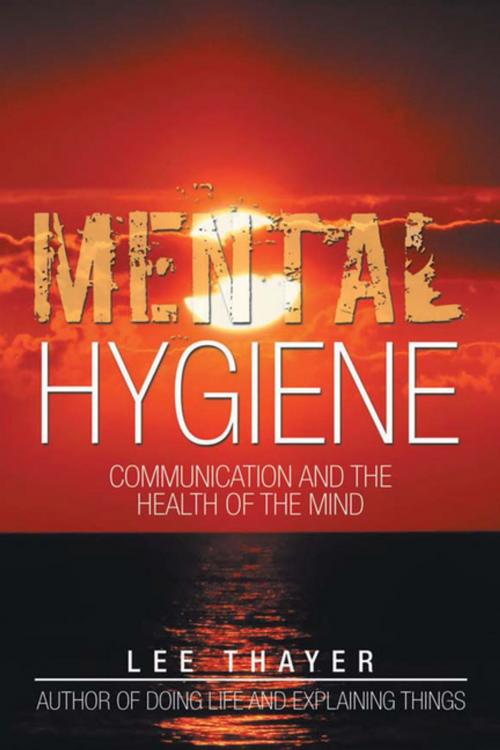| Author: | Lee Thayer | ISBN: | 9781499016314 |
| Publisher: | Xlibris US | Publication: | May 9, 2014 |
| Imprint: | Xlibris US | Language: | English |
| Author: | Lee Thayer |
| ISBN: | 9781499016314 |
| Publisher: | Xlibris US |
| Publication: | May 9, 2014 |
| Imprint: | Xlibris US |
| Language: | English |
If the greatest gains in human health and longevity came not from medical science but from sanitation and hygiene, why might this not also not be the case with our waning mental health and longevity? That is the question this notable scholar of the human condition takes on and then answers in this provocative book. In the last years of the nineteenth century, when human life was in constant jeopardy from pestilence and desperate living conditions in crowded cities, it was changes in human sanitation and improvements in personal and institutional hygiene that created the biggest jump in health and longevity known to human history. Given that human mental health and longevity has been declining for years, it seemed to this widely-known and respected author that the circumstances are similar. Would it be possible to achieve the same remarkable gains in the health and longevity of the human mind by focusing on the same kind of conditions mental sanitation and mental hygiene? Not only does this book answer in the affirmative. It offers substantial evidence that a similar approach can be enormously effective. Where once it was human crowding that contributed to poor physical health, it is now the impact of toxic mental diets and lack of mental immunity that contributes to our increasing personal and social malaise. At a time when freedoms are expanding, we are suffering from the diseases and dysfunctions that arise from consuming so much junk food for the mind that we no longer know or seem to care where we are heading. The lesson from history is that we know more and more about less and less. We have increased our reach many times over with our communication technologies, from smart phones to entertainment diversions of every sort. But we have not increased our grasp one whit. We are drowning in a sea of information that we have little or no need for. We no longer know what our personal or our collective destination is, or ought to be. So we dont know what course to take. Our minds have become less healthy while what we feed it has become more toxic. It is a dire situation for mankind. This is the kind of book that appears at a time when we are most in need of it.
If the greatest gains in human health and longevity came not from medical science but from sanitation and hygiene, why might this not also not be the case with our waning mental health and longevity? That is the question this notable scholar of the human condition takes on and then answers in this provocative book. In the last years of the nineteenth century, when human life was in constant jeopardy from pestilence and desperate living conditions in crowded cities, it was changes in human sanitation and improvements in personal and institutional hygiene that created the biggest jump in health and longevity known to human history. Given that human mental health and longevity has been declining for years, it seemed to this widely-known and respected author that the circumstances are similar. Would it be possible to achieve the same remarkable gains in the health and longevity of the human mind by focusing on the same kind of conditions mental sanitation and mental hygiene? Not only does this book answer in the affirmative. It offers substantial evidence that a similar approach can be enormously effective. Where once it was human crowding that contributed to poor physical health, it is now the impact of toxic mental diets and lack of mental immunity that contributes to our increasing personal and social malaise. At a time when freedoms are expanding, we are suffering from the diseases and dysfunctions that arise from consuming so much junk food for the mind that we no longer know or seem to care where we are heading. The lesson from history is that we know more and more about less and less. We have increased our reach many times over with our communication technologies, from smart phones to entertainment diversions of every sort. But we have not increased our grasp one whit. We are drowning in a sea of information that we have little or no need for. We no longer know what our personal or our collective destination is, or ought to be. So we dont know what course to take. Our minds have become less healthy while what we feed it has become more toxic. It is a dire situation for mankind. This is the kind of book that appears at a time when we are most in need of it.















